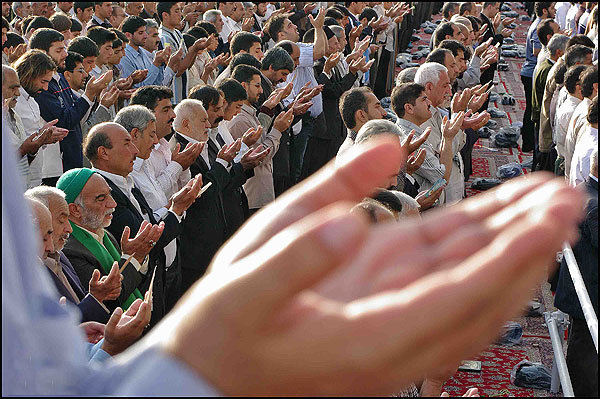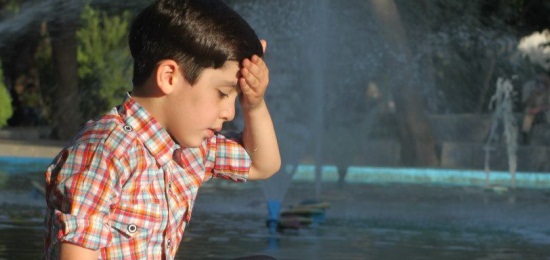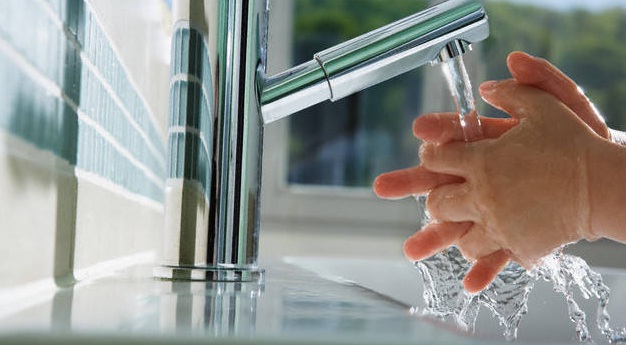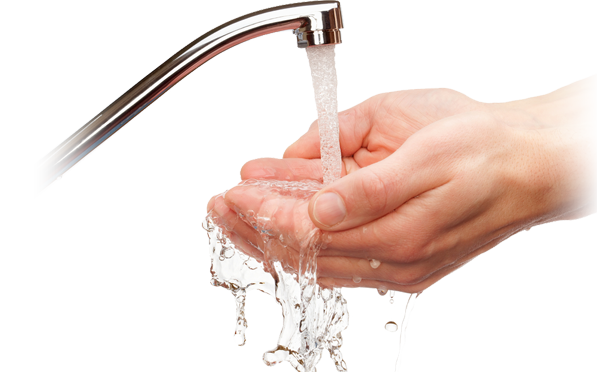Eid al-Fitr and its Prayers
 Once the holy month of Ramadhan is over, the pious get ready to celebrate Eid al-Fitr, Feast of Fast-Breaking, to thank the Almighty who enabled them to fast and to remember the needy and the indigent. It is also customary on such an occasion to give gifts to the members of the family, especially children. Once it becomes known that the next day is going to be the Eid, it is very highly recommended to spend the night preceding the Eid in prayers and adoration.
Once the holy month of Ramadhan is over, the pious get ready to celebrate Eid al-Fitr, Feast of Fast-Breaking, to thank the Almighty who enabled them to fast and to remember the needy and the indigent. It is also customary on such an occasion to give gifts to the members of the family, especially children. Once it becomes known that the next day is going to be the Eid, it is very highly recommended to spend the night preceding the Eid in prayers and adoration.
On p. 104 of al-Saduq’s Thawab al-A’mal, Muhammad ibn Ibrahim is quoted saying that he heard Isma’eel ibn Muhammad quoting Muhammad ibn Sulayman quoting Ahmed ibn Bakr-al-Farisi quoting Muhammadibn Mis’ab quoting Hammad quoting Thabit quoting the great sahabi Anas ibn Malik saying that the Messenger of Allah (S) has said, “The heart of anyone who spends the Eid night [the night preceding the Eid] will not die on the Day when the hearts die.”
How to perform the Eid prayers, what is recommended and what is not in its regard, and all fiqh related to it in the following paragraphs are excerpted from Vol. 1 of Man la Yahduruhu al-Faqih by Shaykh (mentor) Abu Ja’far ibn Ali ibn al-Husayn ibn Babawayh al-Qummi (306 – 381 A.H.).
Is the Eid prayer compulsory (Sunnah wajibah) or is it highly recommended (Sunnah mustahabbah)? Imam Ja’far al-Sadiq, whose followers are referred to as Shi’as Ja’faris Ithna-’Asheris, followers of the Sunnah of the Messenger of Allah (S) as outlined by Imam Ali (as) and according to the fiqh of Imam Ja’far al-Sadiq (as) and who follow all the Infallible Twelve Imams (as), is quoted on p. 339, Vol. 1, of al-Saduq’s book Man la Yahduruhu al-Faqih saying, “Prayers on both Eids (al-Fitr and al-Adha) are compulsory, and so is the prayer on the eclipse.”
The author comments on this weighty statement by saying that the Imam (as) means they are among “minor obligations,” that is, sighar al-faraiz, due to one narration by Hareez which states the following:
Zurarah quotes Imam Abu Ja’far (as) saying: “To pray both Eid prayers with an Imam is a Sunnah; no prayers should be performed before or after them on that occasion till the time of zawal.1
He (as) is also quoted on the same page as saying, “No Eid prayers on both Eids should be offered without an Imam (a just one), but if you pray it by yourself, there is no harm in doing so.” Hareez, on p. 340 of the same reference, quotes Zurarah citing Imam Abu Ja’far al-Baqir (as) saying, “The Commander of the Faithful (Imam Ali), peace be upon him, used not to eat anything on Eid al-Adha till he eats of what he offers by way of sacrifice. And he used not to go out on Eid al-Fitr before eating something and paying the fitra.” Then he added: “And we do likewise.”
How should the Eid (be it Eid al-Fitr or Eid al-Adha) prayers be performed? They are two rek’ats without iqamah or athan. The imam starts by calling “Allahu Akbar!” once, then he recites Surat al-Fatiha and “Sabbih ismi Rabbikal-A’la” (Surat al-A’la, The Most High, Chapter 87, which is comprised of 19 verses), then he makes takbeer(by saying: “Allahu Akbar!”) five times, then he makes qunoot followed by rukoo’, then he is to prostrate twice (as is the case with fajr prayers).
When he stands to perform the second rek’a, he should recite Surat al-Fatiha followed by “Wal shamsi wa Duhaha, etc.” (Surat al-Shams [The Sun], Chapter 91, which is comprised of 15 verses), followed by four takbeers, including takbeerat al-qiyam. Having made takbeer for the fifth time, he makes rukoo’ and goes on to the prostrations as described above. What is recommended to be said during the qunoot(in the first rek’a) of a great occasion such as the Eid? We think the most beautiful supplication is one narrated by Muhammad ibn al-Fudayl who quotes Abu al-Sabah al-Kinani quoting Abu Abdullah Imam Ja’far al-Sadiq (as), our sixth Imam, as follows:
In order to benefit the readers who are not versed in Arabic, we would like to offer this modest translation of the sophisticated text cited above, imploring the Almighty to forgive us for falling short of matching the Arabic text (English never rises to the level of classic Arabic especially when it comes to prayers, the Holy Qur’an, and supplications):
I testify that there is no god but Allah, the One and Only God, without any partner, and that Muhammad is His Servant and Messenger. Lord! You are the Lord of greatness and magnanimity, generosity and might, potence, authority and dignity! I plead to You on this Day which You have made as an Eid for the Muslims and as a treasure for Muhammad (S) and an increase (in his prestige), to bless Muhammad and the progeny of Muhammad, to also bless Your angels who are near to You as well as all Your deputied messengers, and to forgive us and all believing men and women, and all Muslim men and women, the living and the dead.
O Lord! I plead to You to grant me of the best of that for which your righteous servants plead to You, and I seek refuge with You against all (evil) from which Your righteous servants seek refuge with You. Allah is the First and the Last of everything, the One Who knows everything and Who brings them back to life. The destiny of everything is to Him and so is its return. He is the One Who manages the affairs and brings life back to those in the graves. He accepts good deeds and unveils what is hidden; He reveals the secrets of the hearts. Allahu Akbar! His Kingdom is great; He is the ever-Living Who never dies; when He decrees a thing, He only says to it “Be!” and it is! To You are the voices humbled and the faces succumb, and no vision can ever reach him, nor can any tongue glorify You enough.
All forelocks are in Your grip and all affairs are referred to You: none can judge in their regard besides You, nor can anything be accomplished without Your aid. Allahu Akbar! Your protection encompasses everything; Your Dignity subdues everything; Your command overwhelms everything, and everything stands through You. Everything is humbled to Your greatness; everything is subjected to Your Exaltation; everything surrenders to Your will, and everything is a subject in Your Kingdom!Allahu Akbar!
The same reference contains other such sermons for those who appreciate them and who seek nearness to Allah Subhanahu wa Ta’ala through reciting them.
———————————————————
- 1. The time of zawal is when the sun gets closer to midday. For example, if noon is at 12:00 o’clock, the zawal is between 10:30 and 11:00 am. The reason why the Imam (as) says that there should be no prayers performed before or after the Eid prayer is, most likely, to highlight its great significance.









